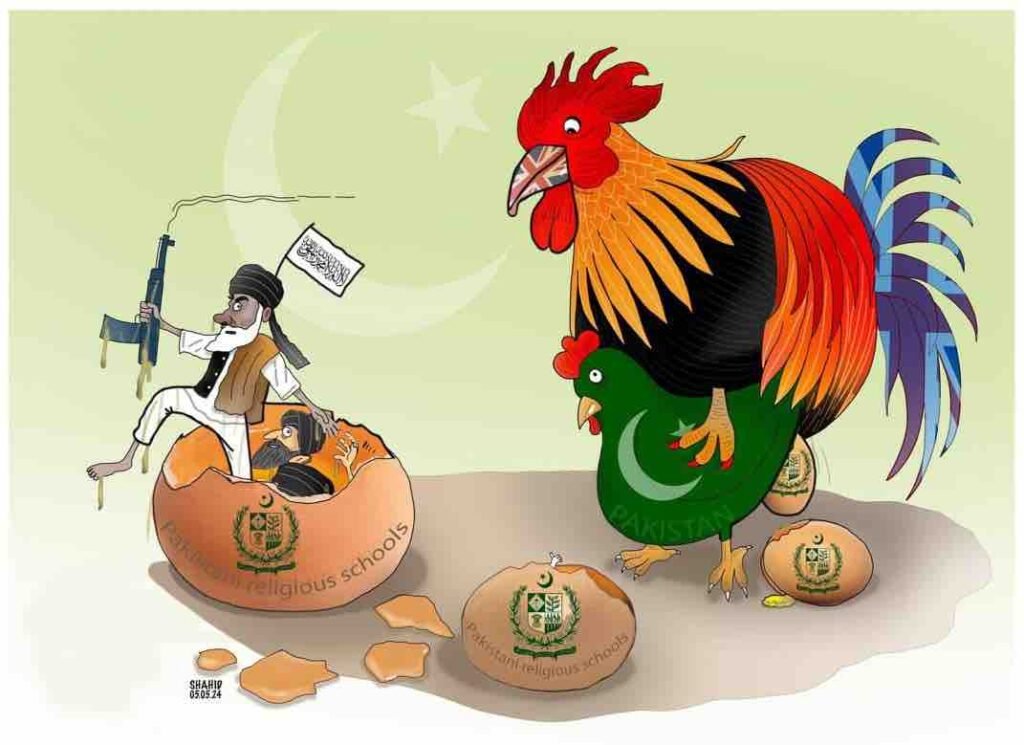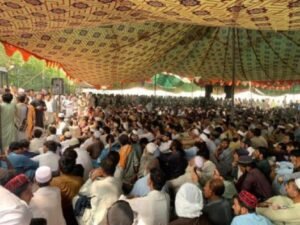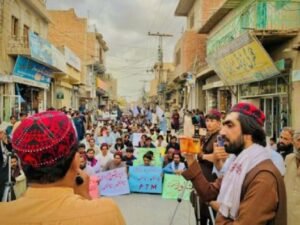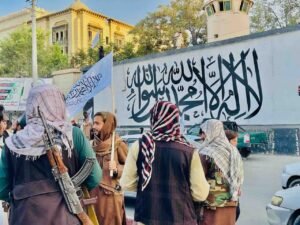No ‘azadi’ for Kashmiris in Pakistan

By Fatima Chaudhary
On May 13, 2024, Pakistan-administered Kashmir (Pak Kashmir) experienced violent confrontations between civilians, led by the Joint Awami Action Committee (JAAC), and paramilitary Rangers. These clashes resulted in the deaths of one police officer and three civilians, with nearly a hundred people injured. Shaukat Nawaz Mir, a key JAAC leader, described the shooting of unarmed protesters as “state terrorism.” He demanded a judicial inquiry into the police actions, punishment for those responsible, and the release of detained activists.
Though the immediate triggers for the unrest were soaring electricity bills and wheat flour prices, these reflect deeper frustrations of the Kashmiris with the Pakistan political establishment. Despite having its official name as Azad Jammu and Kashmir, this Pakistan administered region done have any ‘azadi’ meaning ‘freedom’ and is tightly controlled by Islamabad, mirroring Pakistan’s central political setup dominated by Pakistani parties and the military-bureaucratic establishment. This lack of local autonomy has bred significant resentment, exacerbated by rising prices of essential goods over the past years. Unable to influence key decisions, Kashmiri residents in this Pakistan administered region have increasingly turned to JAAC to voice their demands.
Following these events, Prime Minister of Pakistan administered Kashmir Chaudhry Anwarul Haq announced that the government would meet JAAC’s demands, leading to the protests being called off. Pakistan’s Prime Minister Shehbaz Sharif then visited Muzaffarabad for a special Cabinet meeting, where he directed the formation of a committee to find lasting solutions to the grievances of Pak Kashmir’s residents. Sharif promised that electricity charges would be based on the cost of hydropower generation and committed to addressing the region’s issues through comprehensive plans. Despite these assurances, there remains a risk of future protests due to deeper, unresolved issues. It is also to be seen that such assurances in the past have remained as words and not implemented in actions. With Pakistan under severe economic crisis due to complete mismanagement and widespread corruption, these assurances could be a farce to stop the protests.
The federal government’s increase in electricity tariffs led many in Pak Kashmir to protest by refusing to pay their bills. Economic conditions in the region are dire, with youth unemployment double that of other Pakistani provinces and heavy taxation making survival challenging. Public anger towards local and federal authorities is intense, with many viewing the ruling elites as mere proxies for Islamabad’s interests.
On May 8, traders and civil society groups united under the JAAC banner to demand lower prices and better governance. JAAC, a grassroots organization, has garnered significant support by highlighting the role of the government in their hardships. Despite contributing approximately 3,500 MW of electricity to Pakistan’s grid, Pak Kashmir residents receive no concessions and pay high tariffs, compounded by frequent power outages. JAAC’s demands include aligning electricity charges with production costs and receiving royalties from regional resources.
In 2023, the Islamabad Electric and Supply Corporation (IESCO) took the issue to the Supreme Court, arguing for higher charges due to electricity being exported from Pakistan to Pak Kashmir. Recognizing the sensitivity of the matter, the court directed IESCO to negotiate with the federal government. Numerous rounds of talks between Muzaffarabad and Islamabad have failed to reach a resolution. Residents of Pak Kashmir believe that there was an implicit understanding that they would benefit first from electricity produced by the Mangla dam. However, this has not happened so. This plundering of resources of the region for the benefit of Punjabis in Pakistan fuelled the ongoing resentment towards Islamabad’s governance.
The violence during mid-May underscored the failure of dialogue between the government and protesters. JAAC leaders now demand accountability for the force used against civilians. Continued unrest, despite government concessions, highlights a deep disconnect and potential legitimacy crisis for local political authorities perceived as extensions of Pakistan’s military and political elite. This perception has bolstered support for separatist and pro-freedom parties, positioning themselves as genuine representatives of the people’s will in contrast to traditional political entities.
The unrest has significant implications for Pakistan’s policy and stability in this strategically sensitive region. The federal government’s reliance on paramilitary forces rather than addressing root causes through political dialogue and economic reforms risks exacerbating tensions. The crisis comes at a challenging time for Islamabad, which is dealing with a financial crisis and unpopular economic reforms. The unrest threatens to disrupt the tourism season, potentially leading to significant economic losses.
Moving forward, Pakistan must adopt a transparent, inclusive political process that respects the rights and aspirations of Pak Kashmir’s residents. Engaging genuinely with local representatives to address economic grievances and political disenfranchisement is crucial. Both federal and local governments need to strive for transparency and accountability, reducing military influence to restore public confidence in the political process. Only by fostering political inclusivity and economic fairness can Pakistan stabilize Pakistan administered Kashmir and secure its regional position.
The promises made by the Pakistani Government, including those from the Prime Minister, must not be mere rhetoric; they must translate into concrete, lasting solutions for the benefit of the people of Pakistan administered Kashmir. However, historical experience suggests otherwise, as such assurances have often failed to materialize into action. Given Pakistan’s current dire economic situation, marred by mismanagement and widespread corruption, these assurances could potentially serve as a deceptive ploy to quell the protests.
Fatima Chaudhary is a lecturer at a private university in Punjab province.
Note: The contents of the article are of sole responsibility of the author. Afghan Diaspora Network will not be responsible for any inaccurate or incorrect statement in the articles.





